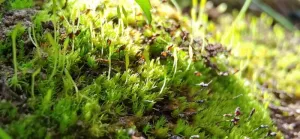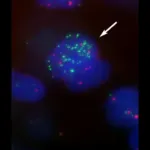(Press-News.org) UNIVERSITY PARK, Pa. — Whether it’s work or play that prevents us from getting enough shut-eye during the week, assuming we can make up for it by sleeping in over the weekend is a mistake. New research led by Penn State reveals that cardiovascular health measures, including heart rate and blood pressure, worsen over the course of the week when sleep is restricted to five hours per night, and attempting to catch up on sleep over the weekend is insufficient to return these measures to normal.
“Only 65% of adults in the U.S. regularly sleep the recommended seven hours per night, and there's a lot of evidence suggesting that this lack of sleep is associated with cardiovascular disease in the long term,” said Anne-Marie Chang, associate professor of biobehavioral health and co-author of the work, published in the journal Psychosomatic Medicine. “Our research reveals a potential mechanism for this longitudinal relationship, where enough successive hits to your cardiovascular health while you're young could make your heart more prone to cardiovascular disease in the future.”
The team recruited 15 healthy men between the ages of 20 and 35 to participate in an 11-day inpatient sleep study. For the first three nights, the participants were allowed to sleep up to 10 hours per night to achieve a baseline sleep level. For the next five nights, the participants’ sleep was restricted to five hours per night, followed by two recovery nights, in which they were again allowed to sleep up to 10 hours per night. To evaluate the effects of this sleep regime on cardiovascular health, the researchers measured the participants’ resting heart rates and blood pressure every two hours during the day.
Chang explained that the team’s study is unique because it measured heart rate and blood pressure multiple times throughout the day for the duration of the study, which enabled them to account for any effects that time of day might have on heart rate and blood pressure. For example, heart rate is naturally lower upon waking than later in the day, so measuring heart rate multiple times throughout the day can account for this difference.
The team, which included David Reichenberger, lead author and graduate student in biobehavioral health, Penn State, found that heart rate increased nearly one beat per minute (BPM) with each successive day of the study. Specifically, the average baseline heart rate was 69 BPM, while the average heart rate by the end of the study on the second day of recovery was nearly 78 BPM. Systolic blood pressure also increased by about 0.5 millimeters of mercury (mmHg) per day. The average baseline systolic blood pressure was 116 mmHg and was nearly 119.5 mmHg by the end of the recovery period.
“Both heart rate and systolic blood pressure increased with each successive day and did not return to baseline levels by the end of the recovery period,” Reichenberger said. “So, despite having additional opportunity to rest, by the end of the weekend of the study, their cardiovascular systems still had not recovered.”
Chang noted that longer periods of sleep recovery may be necessary to recover from multiple, consecutive nights of sleep loss.
“Sleep is a biological process, but it’s also a behavioral one and one that we often have a lot of control over,” Chang said. “Not only does sleep affect our cardiovascular health, but it also affects our weight, our mental health, our ability to focus and our ability to maintain healthy relationships with others, among many other things. As we learn more and more about the importance of sleep, and how it impacts everything in our lives, my hope is that it will become more of a focus for improving one’s health.”
Other Penn State authors on the paper include Stephen Strayer, former graduate student in neuroscience; Margeaux Schade, assistant research professor of biobehavioral health; and Orfeu Buxton, Elizabeth Fenton Susman Professor of Biobehavioral Health. Kelly Ness, postdoctoral fellow, University of Washington, and Gina Marie Mathew, postdoctoral associate, Stony Brook University, also are authors.
END
Playing catch-up on weekends may not improve cardiovascular cost of sleep loss
2023-08-09
ELSE PRESS RELEASES FROM THIS DATE:
A new look inside Ebola's 'viral factories'
2023-08-09
LA JOLLA, CA—New research in the journal Nature Communications gives scientists an important window into how Ebola virus replicates inside host cells. The study, led by scientists at La Jolla Institute for Immunology (LJI), reveals the inner workings of "viral factories," clusters of viral proteins and genomes that form in host cells.
The research team, which included experts from Scripps Research and UC San Diego School of Medicine, found that Ebola virus's replication machinery forms fascinating microscopic ...
Exercise apps a good prescription to boost healthcare workers' mental health
2023-08-09
Simple home workouts using exercise apps can effectively reduce depressive symptoms in healthcare workers and could be a major tool to combat the global mental health crisis in the sector, says new University of British Columbia research.
The study, published today in JAMA Psychiatry, divided participants into either a waitlisted control group or an exercise group who were given free access to a suite of home exercise apps called DownDog, that included yoga, cardio and strength training. They were asked to aim for at least 80 minutes of moderate-intensity ...
Then vs. now: Did the Horn of Africa reach a drought tipping point 11,700 years ago?
2023-08-09
New research suggests that the Horn of Africa is likely to become even drier, not wetter in the future as predicted by most climate models.
‘Wet gets wetter, dry gets drier’. That mantra has been used for decennia to predict how global warming will affect the hydrological cycle in different world regions. But if climate models predict that much of tropical Africa will enjoy a future with wetter weather, then why does it keep getting drier in certain parts of the African tropics, like the Horn of Africa? An international team of researchers ...
Resilient biomedical scientists’ careers took a hit during pandemic
2023-08-09
First study to measure resilience in biomedical scientists during the pandemic
Sixty-one percent of study participants said they experienced a setback during pandemic
‘You can be as resilient as you want, but certain structural factors can hinder your professional advancement’
CHICAGO --- When COVID-19 presented the world with the greatest health challenge in modern history, it was biomedical scientists who stepped up to develop diagnostic testing and vaccines to slow the spread of the disease.
But how did these in-demand scientists fare psychologically and in their careers amid pandemic pressures such as juggling ...
Engineered probiotic developed to treat multiple sclerosis
2023-08-09
Brigham researchers are working on a new approach to target autoimmunity in the brain leverages designer bacteria to make treatment safer and more effective
Researchers from Brigham and Women’s Hospital, a founding member of the Mass General Brigham healthcare system, have designed a probiotic to suppress autoimmunity in the brain, which occurs when the immune system attacks the cells of the central nervous system. Autoimmunity in the brain is at the core of several diseases, including multiple sclerosis. In a new study, researchers demonstrated the treatment’s potential using preclinical models of these diseases, finding that the technique offered a more precise ...
There and back again: how neurons make room for growth in a developing organ
2023-08-09
To function properly, organs require a precise number of cells and a functional architecture, which are established during embryogenesis. Embryos are proficient multitaskers; they grow, and acquire shape and functional architecture all at once. Despite a lot of research on embryo development, scientists do not yetfully grasp how embryos orchestrate all these different tasks in space and time to ensure the formation of healthy organs. This was ...
Oldest extant plant has adapted to extremes and is threatened by climate change
2023-08-09
The rare moss Takakia has adapted over millions of years to a life at high altitudes. An international research team led by Prof. Dr. Ralf Reski from the University of Freiburg and Prof. Dr. Yikun He from the Capital Normal University / China has now discovered exactly how it has developed the ability to survive frost and life-threatening high UV radiation. In the renowned journal Cell, they describe the genetic traits that protect the moss from extreme environmental conditions. At the same time, they document how climate change greatly altered the natural habitat of this highly specialized species within just a few years.
The ...
Drinking alcohol not likely to increase risk of a breast cancer recurrence
2023-08-09
A Kaiser Permanente study provides new information that may help oncologists answer one of the most common questions they hear from breast cancer survivors: Is it safe to drink alcohol?
The new study, published August 9 in Cancer, is the largest prospective study to look at short-term alcohol use after breast cancer. The findings suggest drinking alcohol is not associated with an increased risk of breast cancer recurrence or dying from the disease.
“We know that women who drink alcohol are at increased ...
New machine-learning method may aid personalized cancer therapy
2023-08-09
FOR IMMEDIATE RELEASE
Deep-learning technology developed by a team of Johns Hopkins engineers and cancer researchers can accurately predict cancer-related protein fragments that may trigger an immune system response. If validated in clinical trials, the technology could help scientists overcome a major hurdle to developing personalized immunotherapies and vaccines.
In a study published July 20 in the journal Nature Machine Intelligence, investigators from Johns Hopkins Biomedical Engineering, the Johns Hopkins Institute for Computational Medicine, the Johns Hopkins Kimmel Cancer Center and the Bloomberg~Kimmel Institute for Cancer Immunotherapy show that ...
Childhood cancer: "New" immune system responds better to therapy
2023-08-09
(Vienna, 9.8.2023) Scientists at St. Anna Children's Cancer Research Institute and the Eberhard Karls University of Tübingen have shown that immunotherapy after stem cell transplantation effectively combats certain nerve tumors in children. Crucially, stem cells from a parent provide children with a new immune system that responds much better to immunotherapies. These results of an early clinical trial were published in the prestigious Journal of Clinical Oncology.
Childhood tumors of the nervous system, known as neuroblastomas, are associated with an unfavorable prognosis ...





